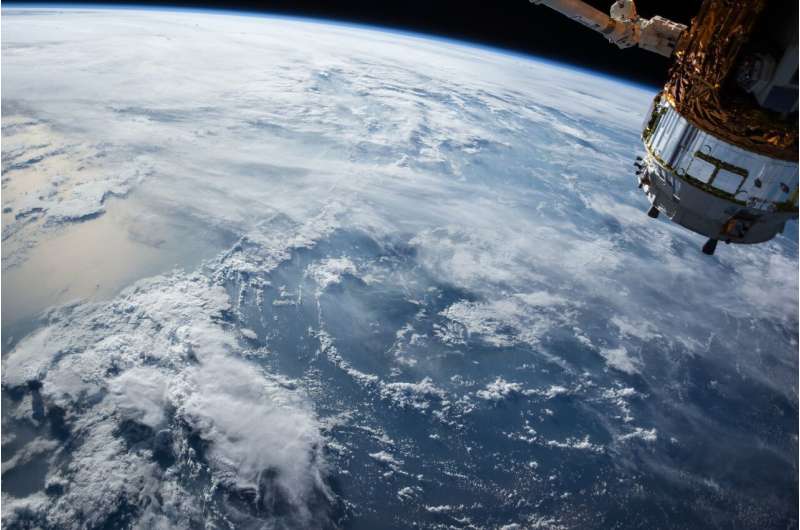, Russia, Canada and Japan, according to the European Space Agency.
When did it launch?
The station was first launched in November 1998. The first crew arrived once the station became habitable on November 2, 2000, and researchers have lived on the space station ever since.
How was it built?
The first piece of the ISS was launched in 1998 by a Russian rocket, according to NASA. It was painstakingly constructed over a decade in 42 different launches, using components lent from each country. Construction of the station was completed in 2011. It is able to house a crew of six people, plus visitors, and covers the area of a football field.
How far from Earth is it?
NASA says that the space station's orbit is about 250 miles above Earth. Every 90 minutes, the station circles Earth at a speed of about five miles per second, according to NASA. In a day, the station makes 16 orbits of Earth, meaning it travels through 16 sunrises and sunsets, NASA says.
What's it like in the space station?
The space station is both a science lab and a home. It has five bedrooms and two bathrooms, and up to six people can live there at once. The station also has a gymnasium and a bay window looking out to space.
Russia (Roscosmos), the U.S. (NASA), Japan (Japan Aerospace Exploration Agency and Europe (European Space Agency) have science labs inside the space station.
How many people have lived there?
As of May 2, 258 people have visited the ISS , according to NASA. Some 158 of those visitors came from the U.S., and 54 came from Russia.
What has the ISS contributed to science?
The various research projects conducted on the ISS are vast and varying, according to NASA. Breakthroughs on diseases, water purification systems, how bodies change with microgravity, black holes and growing food in microgravity conditions are just a few of the advances made by scientists aboard the space station.
How will Russia's departure effect U.S.-Russia relations?
Space exploration and research has long transcended earthly politics between Russia and the U.S.
Russia's departure from the space station comes as tensions are high between the two nations due to Russia's invasion of Ukraine. It is unclear how U.S.-Russian relations will be affected by the move.
Explore further
(c)2022 USA Today
Distributed by Tribune Content Agency, LLC.



